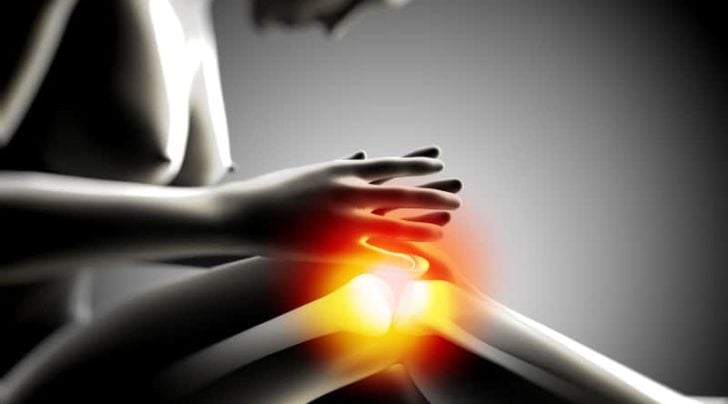
Simply put, if you are unable to straighten your knee after an injury, you may have a severe knee injury. Even mild injuries can result in loss of full motion and pain when trying to straighten your knee. How do we tell whether your knee injury is mild or severe? In general, if you lose the ability to fully straighten your knee you may have a severe or serious knee injury and should see a doctor.
Why can’t I straighten my knee?
Knee injuries often occur after a twisting injury or a direct contact injury. As an athlete, we learn to shake off many knee injuries. After an injury, most of you will wonder if your damage is serious or perhaps just a simple knee strain. Those of you without a known injury, but with a history of knee osteoarthritis might also lose the ability to straighten your knee.
Pain when trying to straighten the knee is common. In general, as specialists, we look for two different situations. One where you cannot straighten your knee because you feel that something is stuck inside the knee and blocking you. The second is someone who injured themselves and can get the knee fully extended, and has severe pain and swelling when trying to straighten the knee.
Below we dive deeper into the causes of pain when trying to straighten your knee. Also discussed below are the five most common problems that make it difficult to straighten your knee.
When should I see a doctor?
How do you determine if you have a serious knee injury? If you hurt your knee twisting it, or if you were struck by someone else and you have pain trying to straighten it, you may have a serious knee injury. But you may not. There is a difference between someone with pain trying to straighten the knee, and someone who simply can’t straighten the knee because they feel like something is blocking their motion.
It turns out that if you lose the ability to straighten the knee fully, or you can not straighten the knee without pain then the risk of having a serious injury increases. Less worrisome are people who simply woke up and now have pain trying to straighten the knee. Often times that might be some inflammation or swelling and is often due to some underlying osteoarthritis.
Determining if you have a severe knee injury is important. After most mild knee injuries we are back on the field fairly quickly. If after a few days you cannot straighten your knee without pain then you cannot return to the playing field. Basically, if your loss of extension (straightening the knee) persists for more than a few days you should see a doctor for an evaluation.
As we discussed in this post, sports medicine doctors consider the loss of being able to straighten the knee one of the signs of a serious knee injury.
A bucket handle tear of the meniscus is one of the most common reasons why you will find it impossible to straighten your knee. We have a post dedicated to this unique meniscus tear here.
If you can’t straighten your knee, you probably have a severe knee injury
After an injury, there are a few different reasons why you might not be able to straighten your knee. Often you can’t straighten the knee simply because of pain and swelling. In cases where you can not straighten the knee because of swelling, you will notice that your ability to move the knee improves as the swelling goes down. Besides, when you have lost the ability to straighten your knee because of swelling, you do not usually feel as if something is stuck inside the knee and blocking your movement. In serious knee injuries, you will often feel as if something is blocking your ability to straighten your leg or your knee feels locked and it is not able to move freely.
Here is a list of knee injuries that can make it difficult to straighten your knee.
5 Common Reasons Why You Can’t Straighten Your Knee?
- Meniscus tear. Specifically a bucket handle tear of the meniscus. This is a unique tear where the torn piece of meniscus flips into the center of the knee joint.
This torn piece then locks your knee and prevents it from straightening. If you have a bucket handle tear of the meniscus, you will find it impossible to straighten your knee completely. These tears can be repaired or sutured back into place. The sooner they are repaired, the better the chance that the tear will heal well. It’s not an emergency, but you should see someone sooner rather than later.
With a bucket handle tear, you will usually feel as if something is caught in the knee and preventing it from straightening. That’s because the meniscus has flipped over and is sitting in the middle of the knee joint preventing it from fully straightening. You will also have severe pain when trying to straighten a knee with a bucket handle tear.
Most bucket handle tears will require surgery to put the torn piece back into position and sew it back into place. The torn portion often requires a repair so that it has a chance to heal. The success rate of fixing a bucket handle tear is very high.
- ACL tear. If you had a twisting injury and felt a pop, there is nearly a 75 % chance that your injured your ACL. Many athletes with an ACL tear will find it painful to straighten the knee. The knee isn’t locked, but it hurts too much to straighten it out.
Within a few days of tearing your ACL, the swelling will start to diminish, and you will likely be able to straighten your knee. Sometimes athletes who tear their ACL will also rip the meniscus too. This is another reason why it might be hard to straighten the knee.
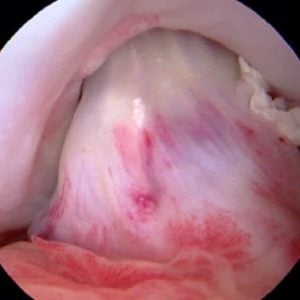
If you twisted your knee and felt a pop, then you noticed that you could not straighten your knee you should see a Sports Medicine Physician. Your next steps if you think you have an ACL tear are discussed here.
- MCL Injuries. MCL or medial collateral ligament tears in the knee hurt. They hurt a lot. That pain will be on the inner or medial side of the knee. An MCL tear can be mild or severe. The ligament can be stretched or completely torn. Both situations will cause severe pain, so the pain level doesn’t correlate with how severe the injury is. We wrote about MCL injuries in this post. Most MCL tears do not require surgery, some may require a brace. MCL injuries often hurt a lot so they prevent you from being able to straighten the knee without pain.
- Swelling. There are many reasons why your knee might be swollen. We explore the common causes of knee swelling here. Swelling is common after severe injuries due to bleeding. That can cause enough inflammation and pain that straightening the knee is just too painful. Bleeding can occur due to a meniscus tear, ACL tear or MCL tear.
Knee swelling can also occur without an injury. People with osteoarthritis can develop swelling due to inflammation. People with gout or Lyme Disease can also develop significant swelling. If the swelling is severe enough, you will lose the ability to straighten your knee. You should work with your doctor to find out why your knee is swollen.
- Patella or kneecap dislocations: Patella dislocations are far more common than previously thought. If you felt or heard a loud clunk or pop in the front of your knee while turning or you were struck in the front of your knee then it is possible that your kneecap came out of place and went back into place on its own.
We call this a spontaneously reduced patella dislocation. Many people who dislocate their kneecap will develop significant swelling due to bleeding inside the joint. After a patella dislocation, you will find it difficult to straighten the knee due to pain. This post on patella dislocations goes into far more detail.
- Tendon Injuries: Some people can not straighten their knees due to weakness or tendon injury. Injuries to the quadriceps or patella tendons will affect your ability to straighten the knee. If one of those two strong tendons are torn, then you will not be able to straighten your knee. If you ripped your patella tendon or your quadriceps tendon, then you physically will not be able to straighten the knee. That is because the muscles which allow you to straighten the knee are no longer attached to your kneecap. That is why people who tear their patella tendons notice significant weakness. Patella tendon and quadriceps tendon injuries are more common in professional sports and adult weekend warriors. These are very rare injuries in high school and collegiate sports. Tears of the patella or quadriceps tendon will always require surgery to repair them. The patella or quadriceps tendon will need to be reattached and sutured to the patella.
If you have suffered an injury to your knee and you are unable to straighten it, then there is a good chance that you have sustained a severe knee injury. If you can’t straighten the knee fully, or cannot straighten the knee without pain, then you should consider seeing a Sports Medicine doc sooner rather than later.
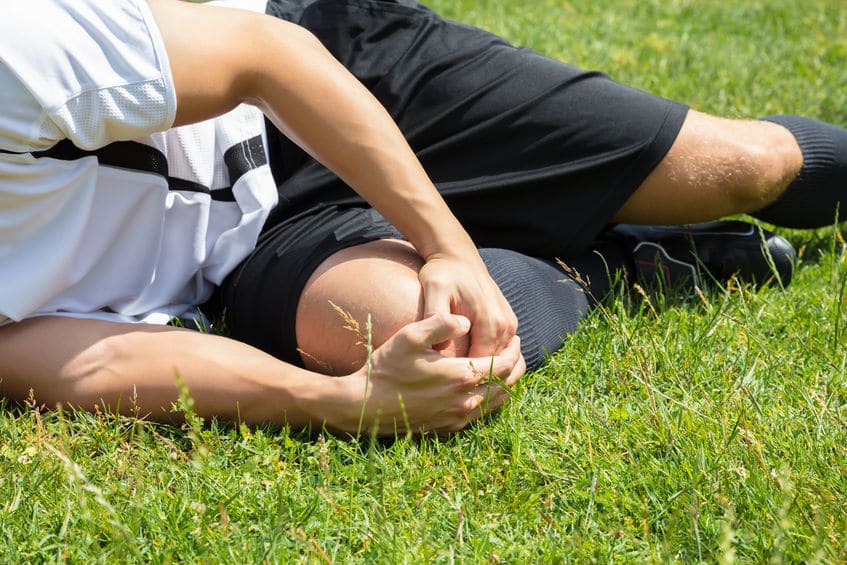
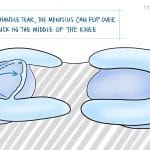
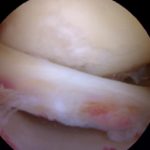
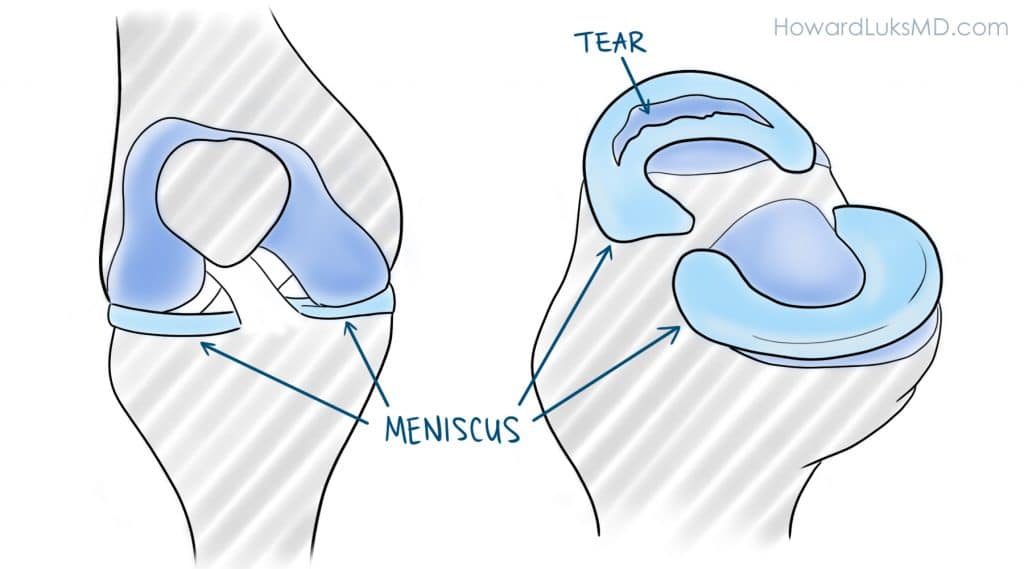
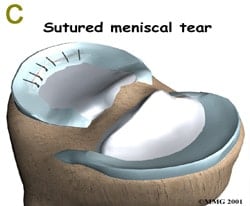
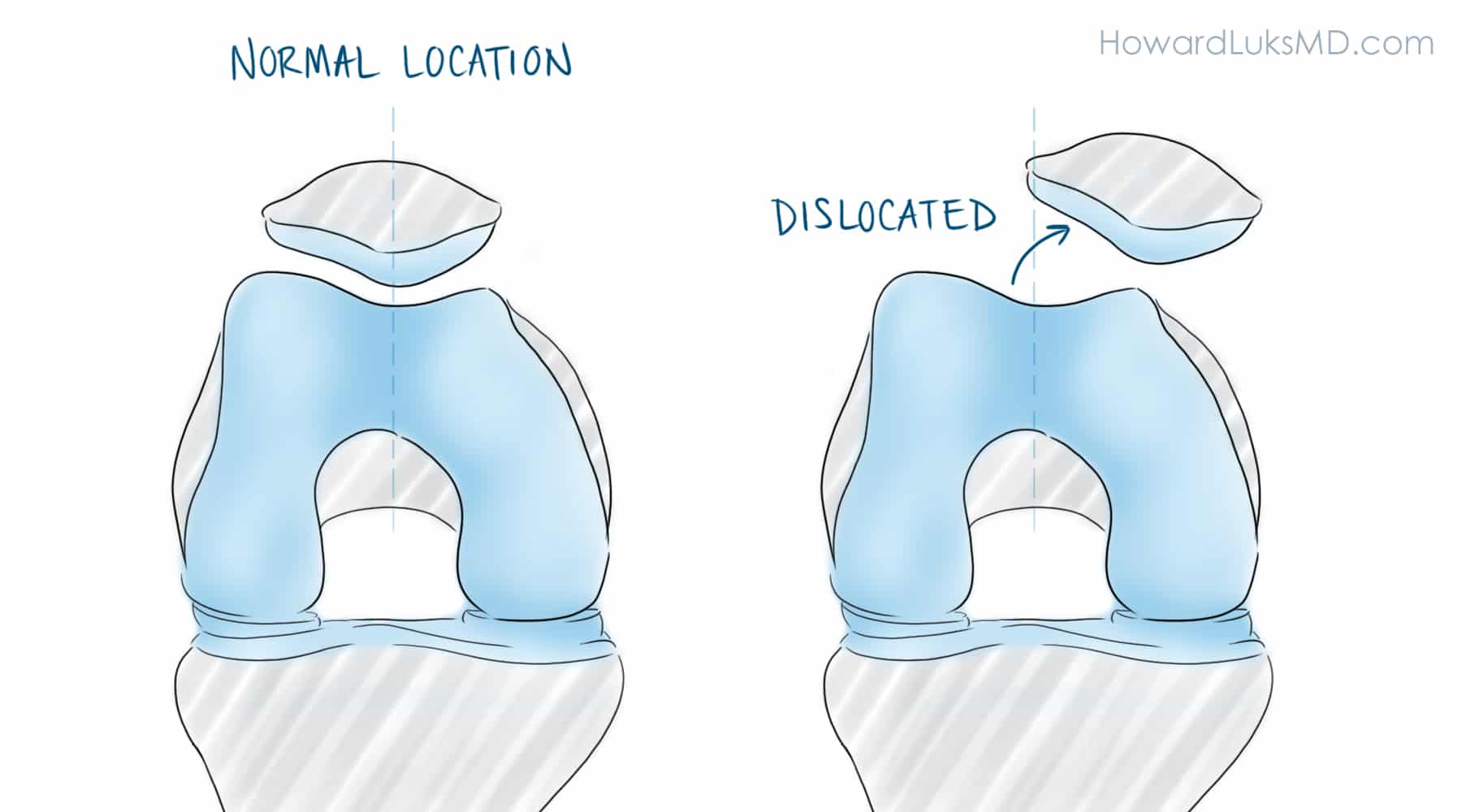





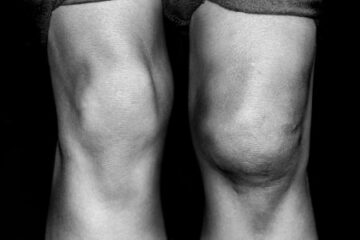








My 11 year old son fell off his bike and landed on his knee. It hurt for a little while and then went away but he limps when he walks. He says it hurts to straighten it and put his full weight on it. It is not bruised or swollen. In fact I am able to put pressure and his knee and the surrounding area with no soreness. I am wondering if his knee just needs time to heal or if there is something seriously wrong. It’s been about 4 days. I am embarrassed to say that we have no medical insurance and I am a single mom so there is no extra money laying around for a Doctors visit. Am think of taking him to an ER or something but want to make sure I am not over reacting or incurring an unnecessary cost.
Please don’t be embarrassed… we as a country should be embarrassed that we have people who are uninsured.
If your child still cannot fully straighten the knee and put weight on it then you should have him see someone.
I was playing basketball a few weeks ago and felt something in my knee pop out of place. It popped back in pretty quickly and I was able to continue playing. It happened two more times after this first time and I was able to pop it back in when I would straighten my leg out completely. It just happened again today and the pain is too much to straighten my leg and pop it back into place. At this point, I feel like I should go see someone. Does it sound like a tear of some ligament?
HI Chris… it sounds like it could be a bucket handle meniscus tear. Here is a post on that.